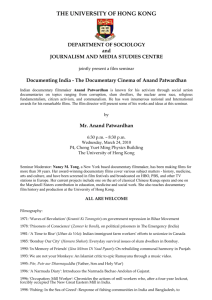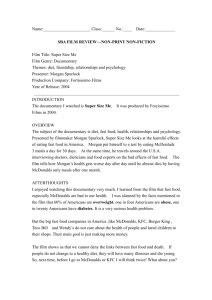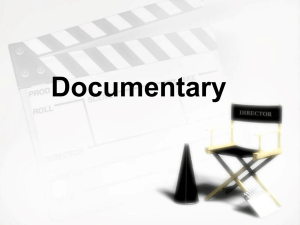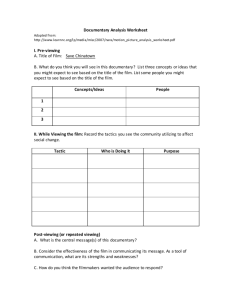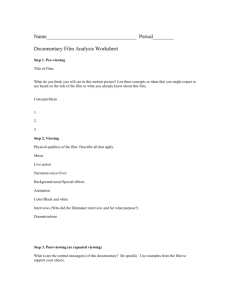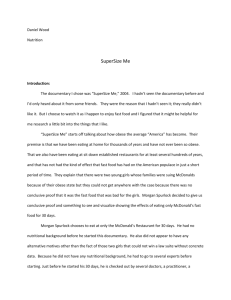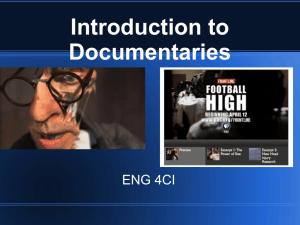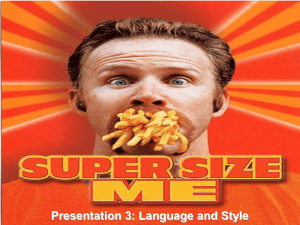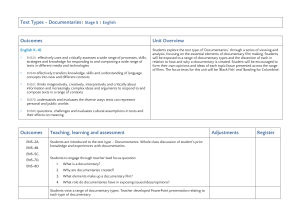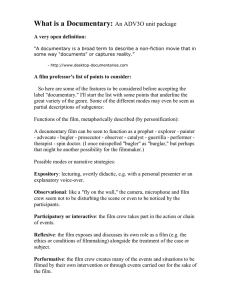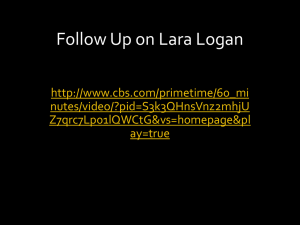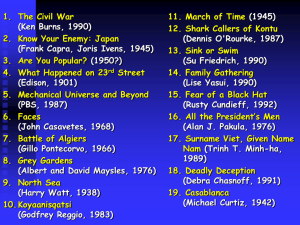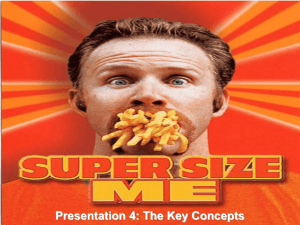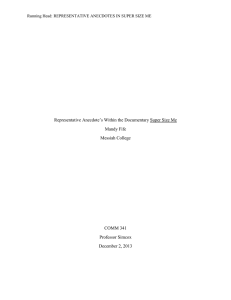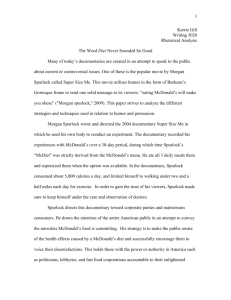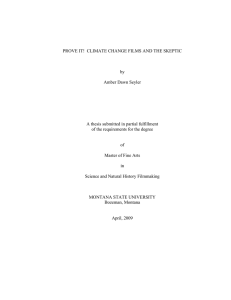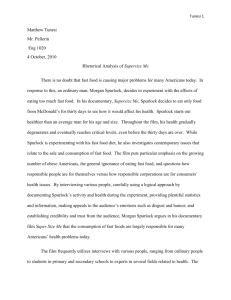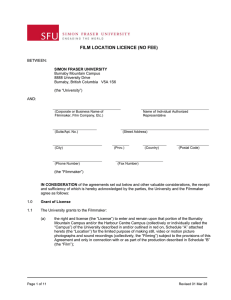McDonalds Video Worksheet 03.05
advertisement
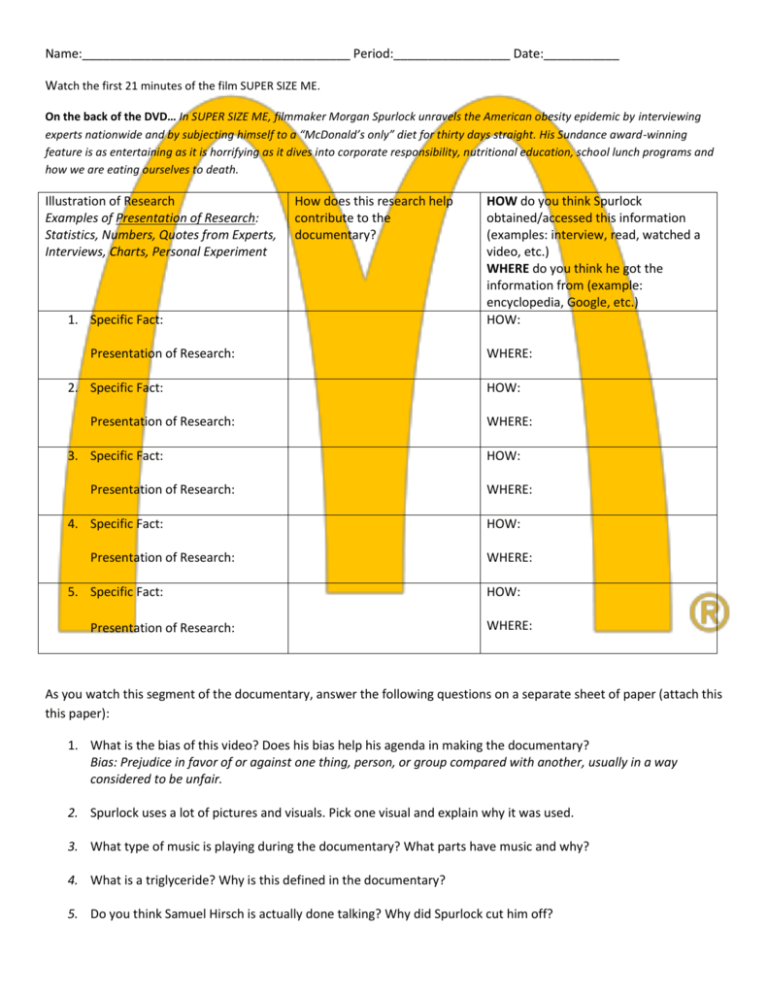
Name:_______________________________________ Period:_________________ Date:___________ Watch the first 21 minutes of the film SUPER SIZE ME. On the back of the DVD… In SUPER SIZE ME, filmmaker Morgan Spurlock unravels the American obesity epidemic by interviewing experts nationwide and by subjecting himself to a “McDonald’s only” diet for thirty days straight. His Sundance award-winning feature is as entertaining as it is horrifying as it dives into corporate responsibility, nutritional education, school lunch programs and how we are eating ourselves to death. Illustration of Research Examples of Presentation of Research: Statistics, Numbers, Quotes from Experts, Interviews, Charts, Personal Experiment How does this research help contribute to the documentary? 1. Specific Fact: Presentation of Research: 2. Specific Fact: Presentation of Research: 3. Specific Fact: Presentation of Research: 4. Specific Fact: Presentation of Research: 5. Specific Fact: Presentation of Research: HOW do you think Spurlock obtained/accessed this information (examples: interview, read, watched a video, etc.) WHERE do you think he got the information from (example: encyclopedia, Google, etc.) HOW: WHERE: HOW: WHERE: HOW: WHERE: HOW: WHERE: HOW: WHERE: As you watch this segment of the documentary, answer the following questions on a separate sheet of paper (attach this this paper): 1. What is the bias of this video? Does his bias help his agenda in making the documentary? Bias: Prejudice in favor of or against one thing, person, or group compared with another, usually in a way considered to be unfair. 2. Spurlock uses a lot of pictures and visuals. Pick one visual and explain why it was used. 3. What type of music is playing during the documentary? What parts have music and why? 4. What is a triglyceride? Why is this defined in the documentary? 5. Do you think Samuel Hirsch is actually done talking? Why did Spurlock cut him off? Place a next to the type of documentary you believe SUPER SIZE ME was. _______Performative documentaries stress subjective experience and emotional response to the world. They are strongly personal, unconventional, perhaps poetic and/or experimental, and might include hypothetical enactments of events designed to make us experience what it might be like for us to possess a certain specific perspective on the world that is not our own, e.g. that of black, gay men in Marlon Riggs’s Tongues Untied (1989) or Jenny Livingston’s Paris Is Burning (1991). This sub-genre might also lend itself to certain groups (e.g. women, ethnic minorities, gays and lesbians, etc) to ‘speak about themselves.’ Often a battery of techniques, many borrowed from fiction or avant-garde films, is used. Performative documentaries often link up personal accounts or experiences with larger political or historical realities. _______Participatory documentaries believe that it is impossible for the act of filmmaking to not influence or alter the events being filmed. What these films do is emulate the approach of the anthropologist: participant-observation. Not only is the filmmaker part of the film, we also get a sense of how situations in the film are affected or altered by her presence. The filmmaker steps out from behind the cloak of voice-over commentary, steps away from poetic meditation, steps down from a fly-on-the-wall perch, and becomes a social actor (almost) like any other. The filmmaker retains the camera, and with it, a certain degree of potential power and control over events. The encounter between filmmaker and subject becomes a critical element of the film.


